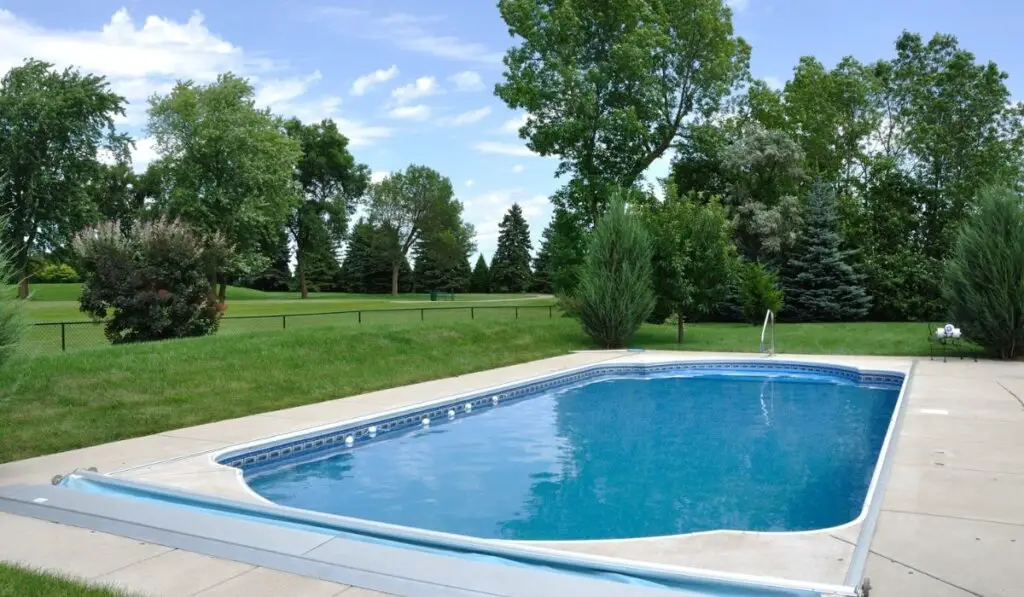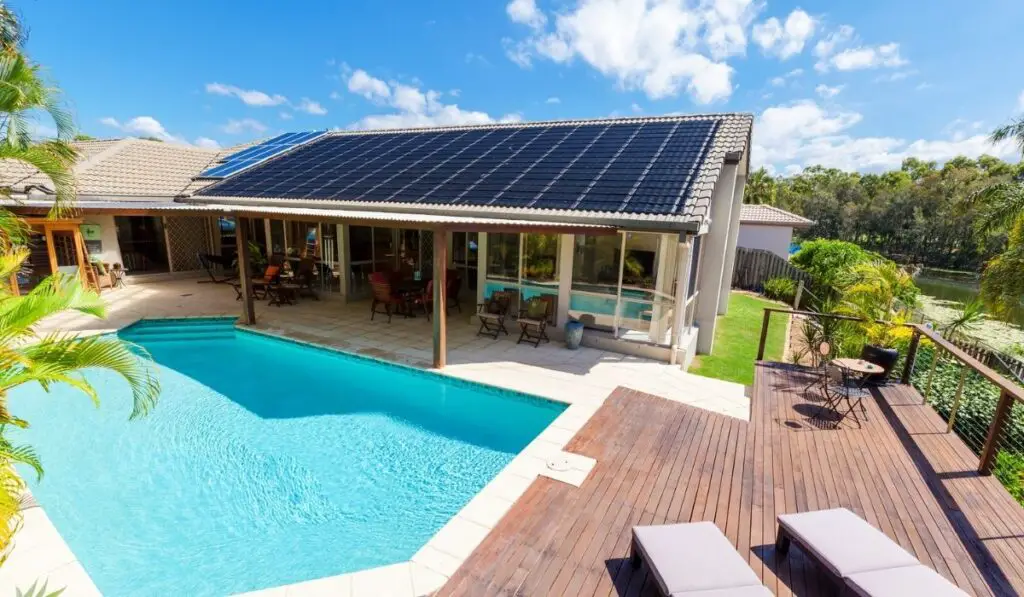If you’ve got a liner pool, you may be curious if you can keep up your pool during the winter months. You can always winterize the pool, but what about heating it? Although you may have some concerns about your liner, there are a few ways you can get the job done.
You can heat a liner pool with a gas, electric, or solar-powered unit. The best option will depend on your location, pool size, and individual preferences. Solar, for example, is environmentally friendly and more affordable, but also slower than gas or electric.
Let’s take a closer look at each of these options and their advantages, so that you can make the best decision for your property. We’ve got all the information you need; just read on!
Can You Heat A Liner Pool?

With liners made from all kinds of materials — but often vinyl — adding extra heat to your pool might seem like a recipe for disaster. But the good news is that you can indeed heat a liner pool.
Several methods and products exist to help you heat your pool safely, regardless of your liner style. There will be pros and cons to each type of pool heater, so make sure you weigh your options before making any purchases.
In most cases, you’ll need to consider the size of your pool, your location, energy costs, and heating efficiency. These factors can vary from pool to pool. If you have any concerns, you should connect with a pool service to figure out the best option.
Energy costs to heat a pool can be quite considerable. If you live in a colder climate and want to keep a swimmable pool all year long, be ready for some significant costs on each month’s energy bill. You can opt for more sustainable options — but more on that later.
Types of Pool Heaters
Most pool owners will choose between three main heater styles:
- Gas-powered
- Electric
- Solar
Each has its own advantages and disadvantages. For instance, solar can save you on electricity costs but don’t expect the same performance as the other two options.
Still, if you’re looking to keep your pool warm without harming the environment too much, this is really a great option. Let’s explore some of these pool heaters a bit more.
Gas-Powered Heaters
First on our list is gas- or propane-powered heaters. As you might expect, these are the heavy hitters on our list and certainly the most traditional option. But they work, and for good reason. The steady supply of burning fuel means you’re getting a lot of heat quickly.
Gas heaters work by drawing in pool water through the pump. This water circulates past the gas burner mechanism and back into the pool. While they operate with around 80% efficiency, they can still be quite costly. On the upside, they heat the water the fastest out of all our options.
Electric Heaters
If you’re looking for a non-gas alternative without the need for solar panels, electric is the way to go. These units use a similar mechanism to gas-powered units, but instead of heating the water itself, electric units transfer heat using all kinds of internal mechanisms.
The result is a warm pool, but with some caveats. First, electric heaters don’t work as well under around 55 degrees Fahrenheit. This has to do with the way the heater heats the water. They can also be costly on the front end of the installation. On the plus side, however, they are much more energy efficient than gas units.
Solar Heaters
Last on our list are solar heaters. These units, as you could probably guess, utilize solar panels as an energy/heat source. The mechanisms behind this heating type can vary from unit to unit.
For instance, some solar heaters work as pool covers, while others draw energy from roof panels.
Solar heaters can be quite efficient and sustainable, but they don’t provide the same speed as other options. It’ll take you much longer to heat your pool with solar.
Moreover, they can be costly to set up. Still, once you have everything up and running, upkeep costs are next to nothing.
How to Use a Pool Heater
In almost all cases, your pool heater unit will be attached to your pump line at some point. This will be the mechanism by which the heated water is transferred back into your pool. The one exception is the solar-powered heater covers, which are installed on top of your pool.
Once you have your unit installed, you’ll still need to set everything up to run smoothly. In most modern heating systems, you’ll have some sort of digital control unit with the current temperature and the set temperature — similar to your home thermostat.
Now, depending on the type of heater you have, heating can take some time. For gas units, this could be a full day of heating, while electric takes a bit longer and, with solar, you’re looking at a few days.
Be sure to use your heater well before you intend to swim. This will give your heater enough time to do its work.
Alternatives to Pool Heaters

While gas, electric, and solar are the top options, there are a few other flavors of pool heater that may be more useful for you and your pool. These options won’t pack the same kind of efficiency as the ones we already mentioned, but they work well for specific situations.
For instance, solar mats (on Amazon) are a popular way to heat small pools. They work by pumping water into mats that are then warmed by the sun. The warm water is pumped back into the pool. There are also solar domes, which work under a similar principle.
Another option would be to use a heat exchanger (on Amazon). These units push water through heated elements and quickly warm a pool. The downside is that they’re very costly to operate.
Heat exchangers are a good option for homes where swimming in a heated pool is a once-in-a-while kind of experience. Vacation homes, for instance, would be a good candidate.
